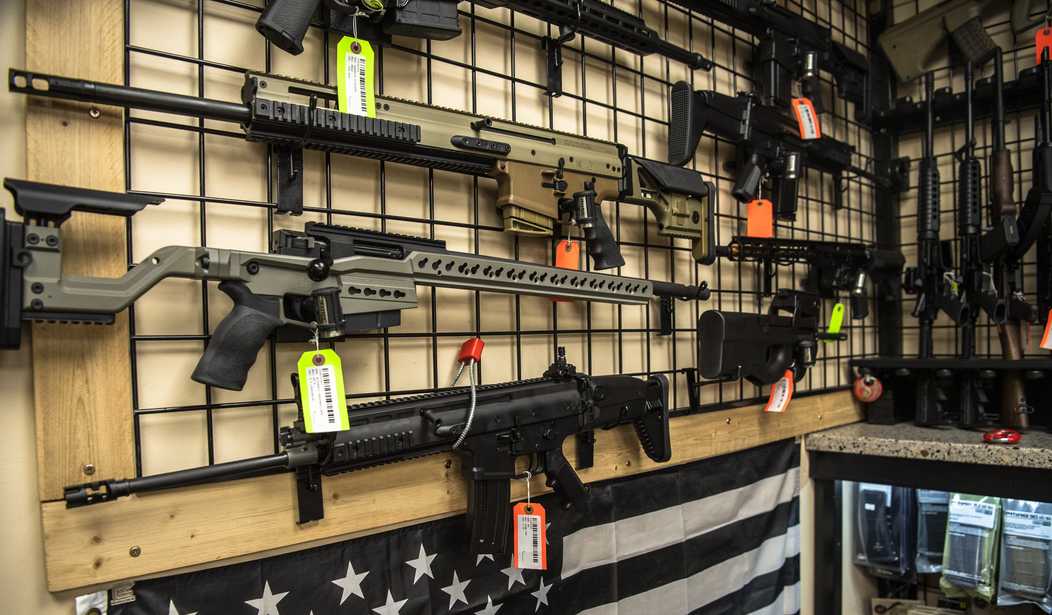The state of California isn’t a big fan of gun ownership. One of its long-term goals is to decrease the number of people who own firearms. That’s why they keep trying to make it harder and harder to buy and keep guns.
They know they can’t reduce that number to zero–not reasonably, anyway–but that doesn’t stop them from trying.
Yet with all the state’s anti-gun push, gun ownership rates are increasing. Not only are these laws not working as at least some intended, they’re seemingly backfiring entirely.
Why is that?
Because guns aren’t the only thing California’s been up to late. They’ve also been decriminalizing.
The two diverging trends since 2006 depict an unintended consequence worthy of highlighting. The policies aimed at decriminalizing crimes and adopting a more lenient approach to law enforcement have made Californians feel unsafe, so much so that an increasing number of them have taken personal security into their own hands by buying firearms. This trend stands in sharp contrast to the legislature’s tough stance on gun ownership, touting gun safety laws.
The state’s journey into decriminalization was initially hailed as a progressive step towards a more humane and equitable justice system. However, the data suggest that the zealous pursuit of minimizing punishment and prosecution and a weakening of and repeated attacks on law enforcement have inadvertently heightened public concern for personal safety, compelling residents to arm themselves out of fear and a sense of vulnerability.
In light of this, California’s policymakers have failed to recognize that balancing the noble goals of criminal justice reform with ensuring public safety is imperative to maintaining public trust. The current trajectory suggests the pursuit of overhauling the criminal justice system must not overlook the fundamental need for security that drives individuals toward gun ownership.
…
For California to be a national role model in the adoption of stricter gun laws, it must first establish that it is not simultaneously disregarding public safety.
Credibility in its position is essential. Ensuring that its citizens do not feel the need to arm themselves for protection should have been an important part of the criminal justice reform. Yet, the state’s failure to account for the importance of public safety has fueled a surge in gun ownership in California that can prove to be costly for many years to come.
I don’t know about that. Guns in the hands of law-abiding citizens has never been the threat, despite what anti-gunners routinely try to argue.
But if one’s goal is, in fact, to reduce gun ownership, opening the prison gates and letting the hordes loose onto the people of California is probably not the best strategy.
As we’ve seen over the past few years, this push toward decriminalizing literally everything isn’t exactly working out well. Had they just stuck with victimless crimes, they might have found less pushback. Unfortunately, that’s not what happened and in the wake of the pandemic, a lot of people became very uncomfortable.
When people become worried about crime, they have a tendency to look at how to mitigate that risk. When people are being killed, that’s going to lead them to guns. After all, if the bad guys are going to have those, you don’t have a lot of alternatives besides being a victim.
See, some folks in California were so arrogantly sure of what they were doing that they never bothered to think of what the results of such things would be. They decided unilaterally that they weren’t going to prosecute a whole host of crimes, including crimes with actual victims.
That led to the current situation, and those folks have no one to blame but themselves.
What’s more, a lot of those new gun owners will become gun voters, thus potentially making it harder for them to pass gun control in the future.
So, I suppose that in time, we’ll thank them for it. They won’t offer a “you’re welcome” in return, though.








Join the conversation as a VIP Member